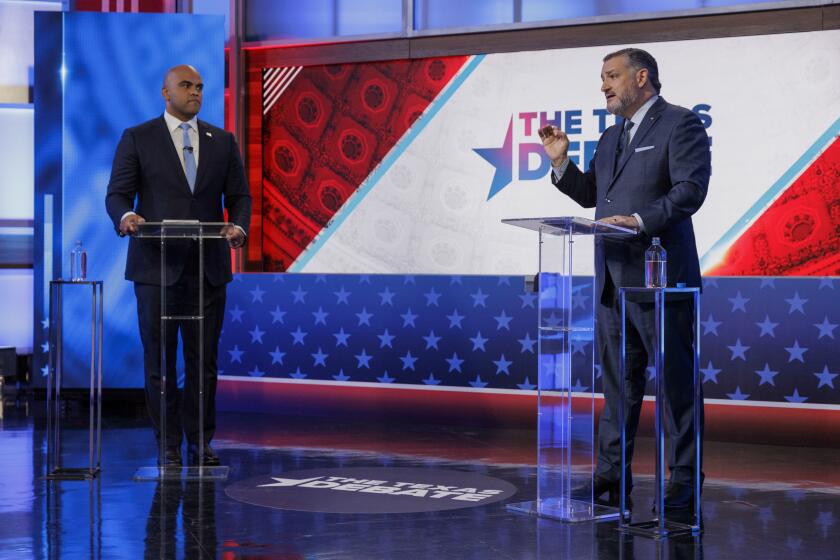RELIGION : Racial Bias Charged : IRS Lifts Church’s Tax Exemption
The Internal Revenue Service, in a case that could break new legal ground, has revoked the tax exemption of a church that it has accused of operating a racially segregated school.
The IRS has pulled the tax exemptions of church-related schools in the past, including that of Bob Jones University in South Carolina in a controversial case in 1983, but an agency official said this is the first case in which it has taken such action against a church.
Officials of church groups, while decrying any policy of racial discrimination, expressed concern. “It does sound a little extreme,” said Dean M. Kelley, director for religious liberty at the National Council of Churches.
“It’s a square presentation of the issue” of how far the government may go in the ticklish area of the church-state relationship, said Forest Montgomery, an attorney with the National Assn. of Evangelicals.
The case raises tough legal issues. The First Amendment to the Constitution guarantees free exercise of religion. But to resolve societal conflicts, courts are being called upon increasingly to define the limits of that guarantee.
Cases involving religious institutions, encompassing everything from racial policies to homosexual rights to land-use questions, have been litigated in the last few years. In general, the courts have granted the government broad discretion in regulating church-related activities.
The Second Baptist Church of Goldsboro, N.C., is challenging the revocation of its tax exemption in the U.S. Tax Court here, contending that the school it operated was not segregated during the years in question but that even if it were, “the church’s activities as a church provide a public benefit to society” that would justify an exemption.
Preparing the Arguments
The IRS asked for more time to prepare its arguments to the court because the case presents “issues of first impression,” meaning that the court has not dealt with them before.
IRS officials declined to comment on the Goldsboro case specifically, but Marcus Owens of the IRS’ Exempt Organizations Technical Division said that in general, churches must adhere to the same standards as any other charitable organization in order to retain a tax exemption.
The Goldsboro case had its origins with the Goldsboro Christian Schools, an elementary and secondary school founded in 1963 and run by a nonprofit corporation affiliated with the Second Baptist Church. The schools had “an admissions policy controlled by the religious belief that God set up racial barriers and that mixing of the races is contrary to the teaching of the Bible,” according to the church’s Tax Court petition.
Corporate Exemption
In the early 1970s, the IRS denied the corporation’s tax exemption, and the corporation sued to recover it. During the course of the litigation, which was ultimately consolidated with a similar suit brought by Bob Jones University, the church itself took over operation of the schools.
It continued its policy of segregation until the Supreme Court decided the cases in favor of the IRS, according to the petition. Following that, it adopted a policy of non-discrimination and began accepting minority students, enrolling as many as five blacks among its 307 students in 1986-87, the school’s last year in operation.
Subsequently, the IRS revoked the church’s tax exemption for 1983, ’84 and ‘85, charging the church with continuing to discriminate.
More to Read
Sign up for Essential California
The most important California stories and recommendations in your inbox every morning.
You may occasionally receive promotional content from the Los Angeles Times.









